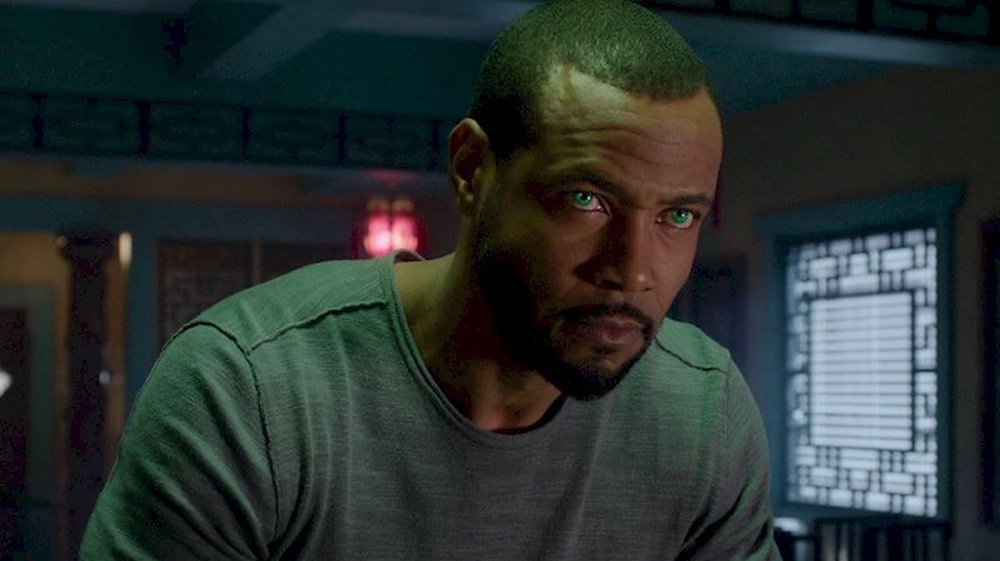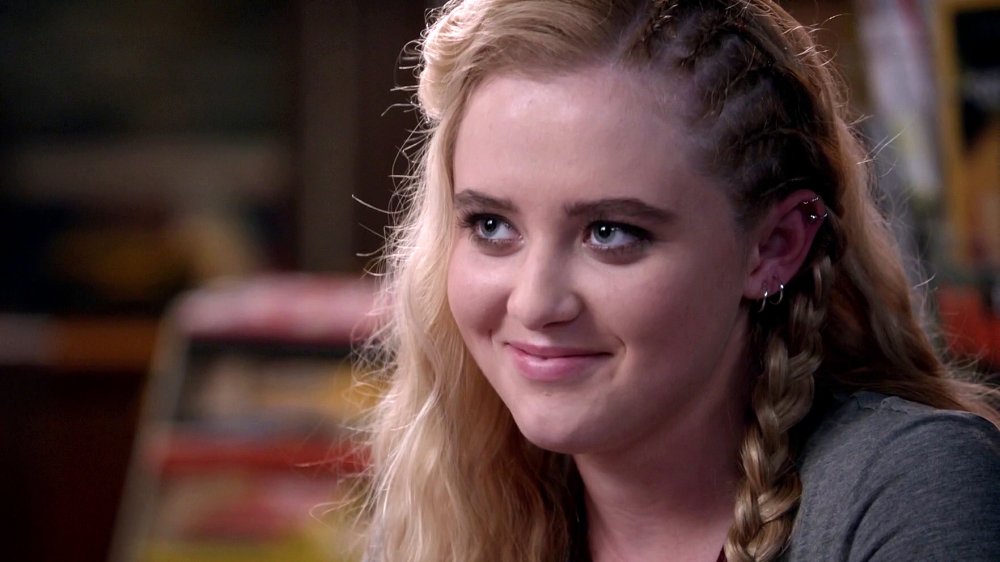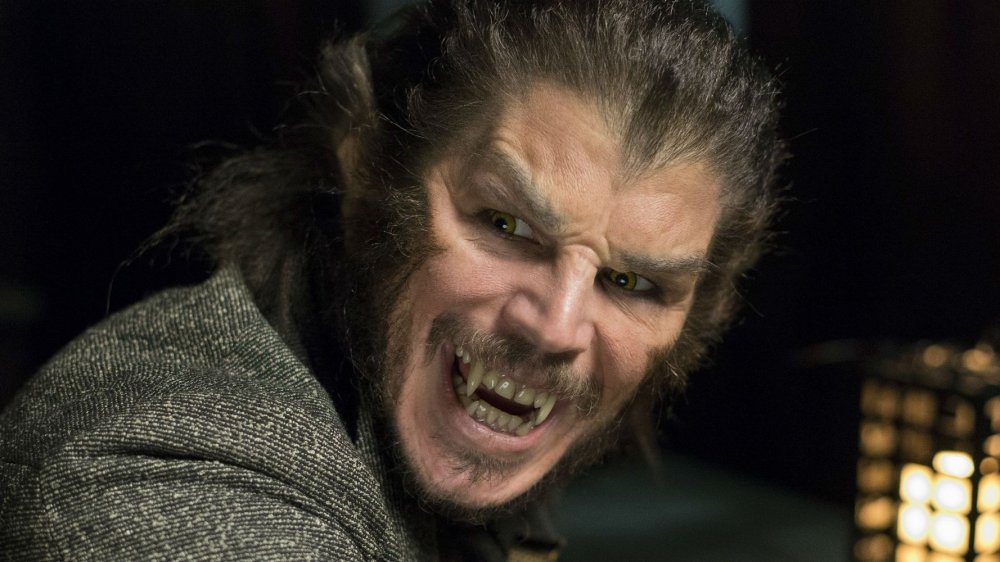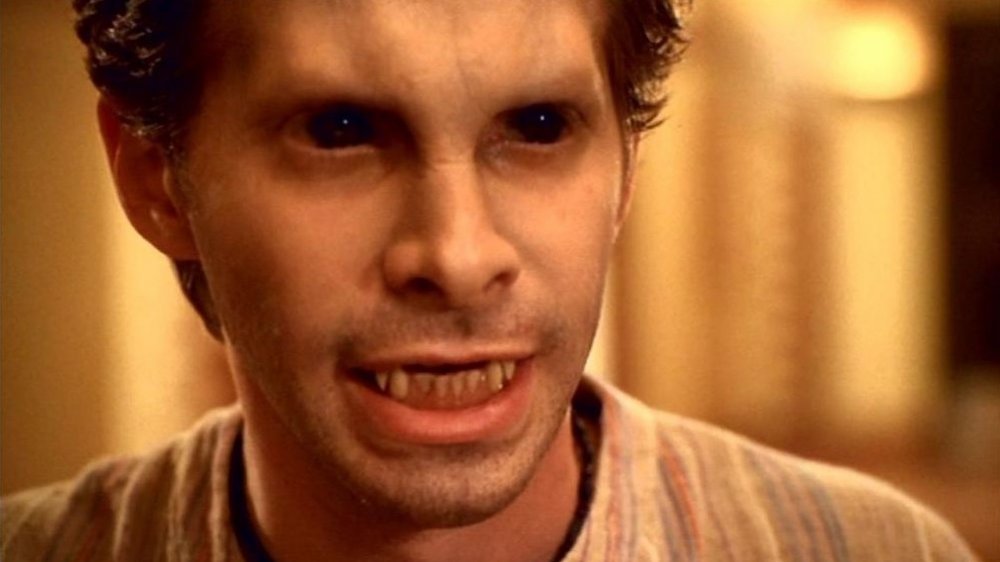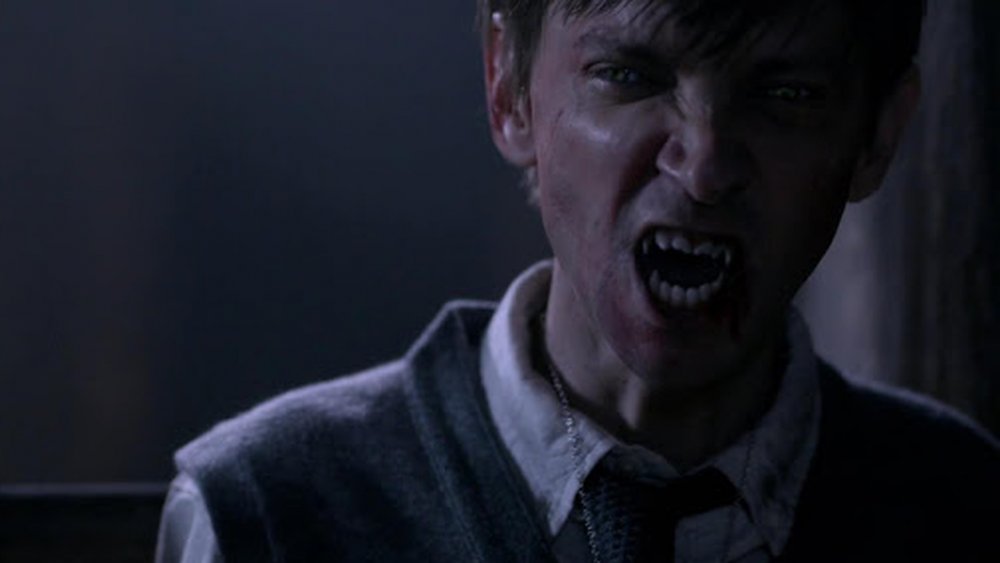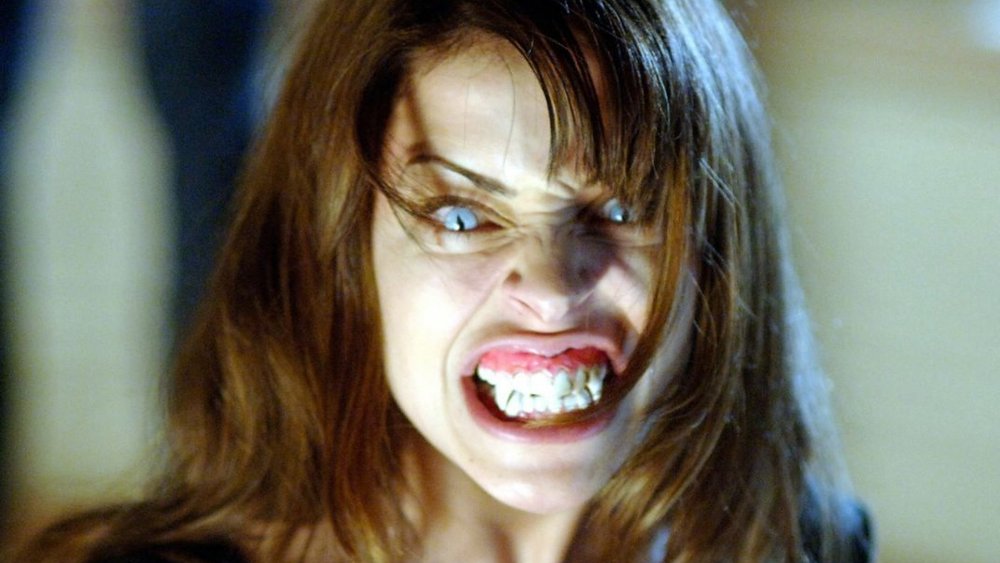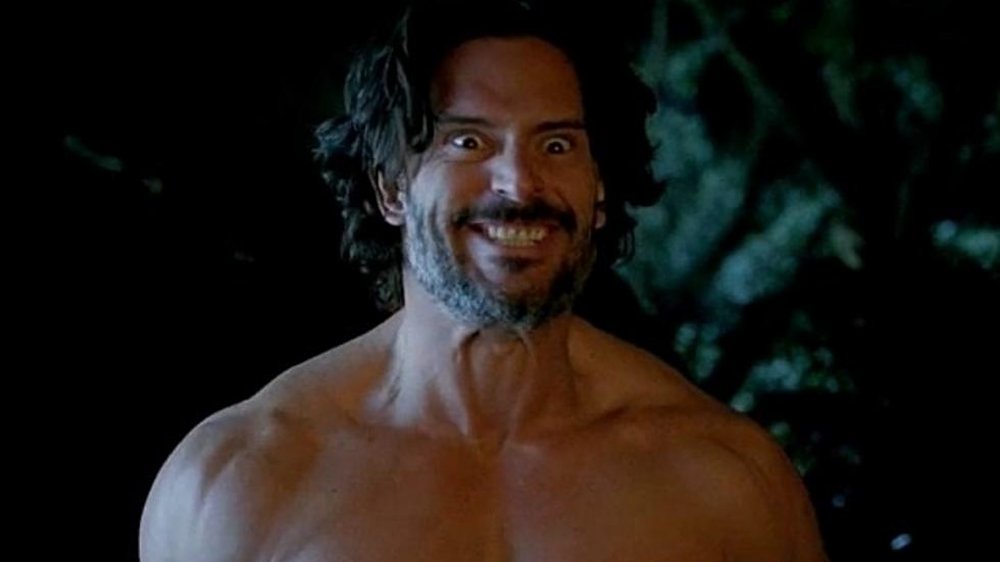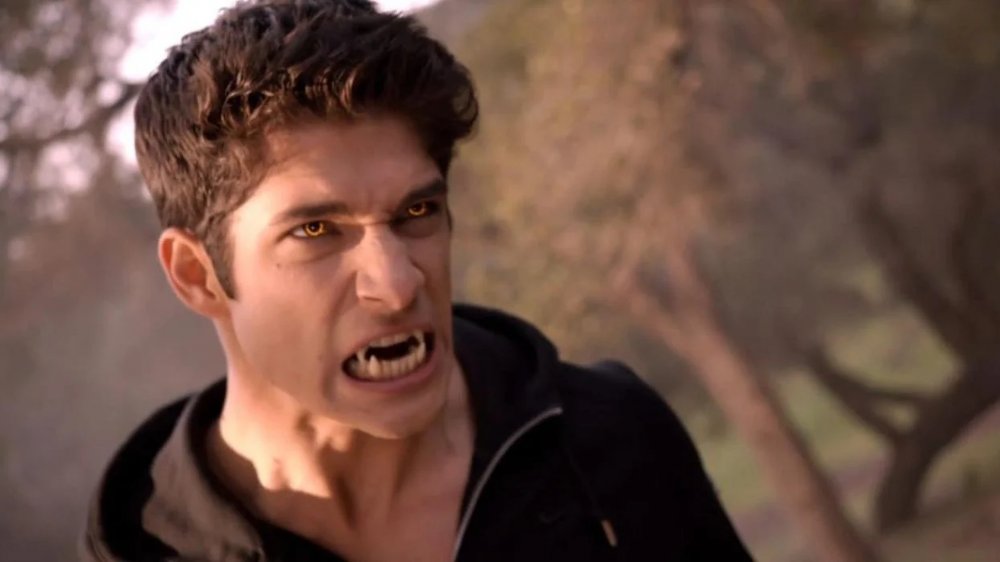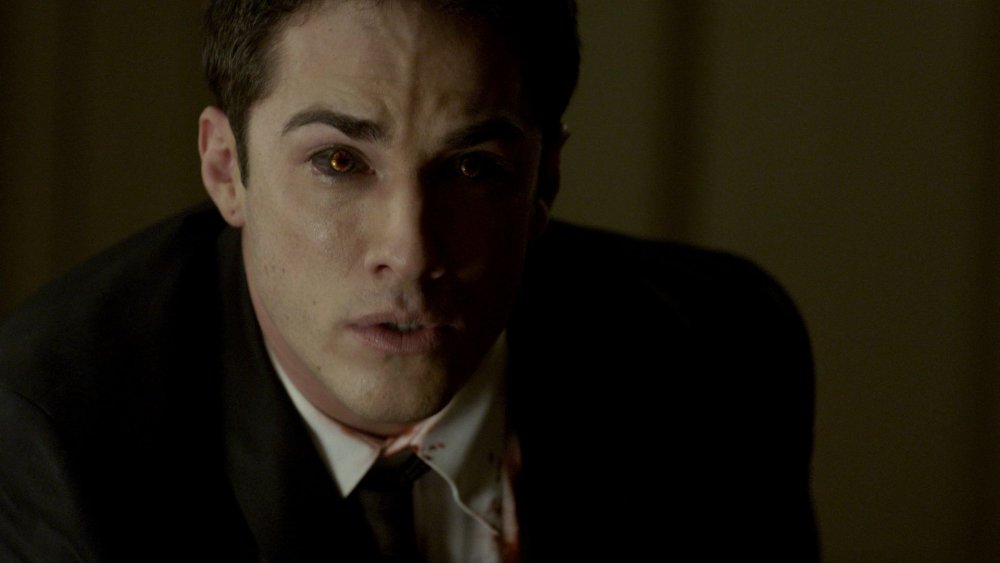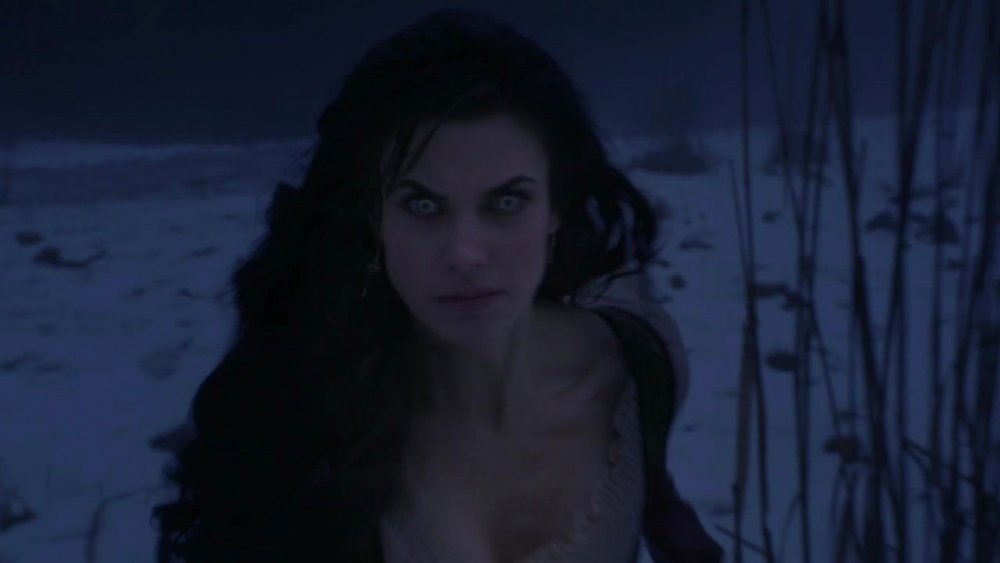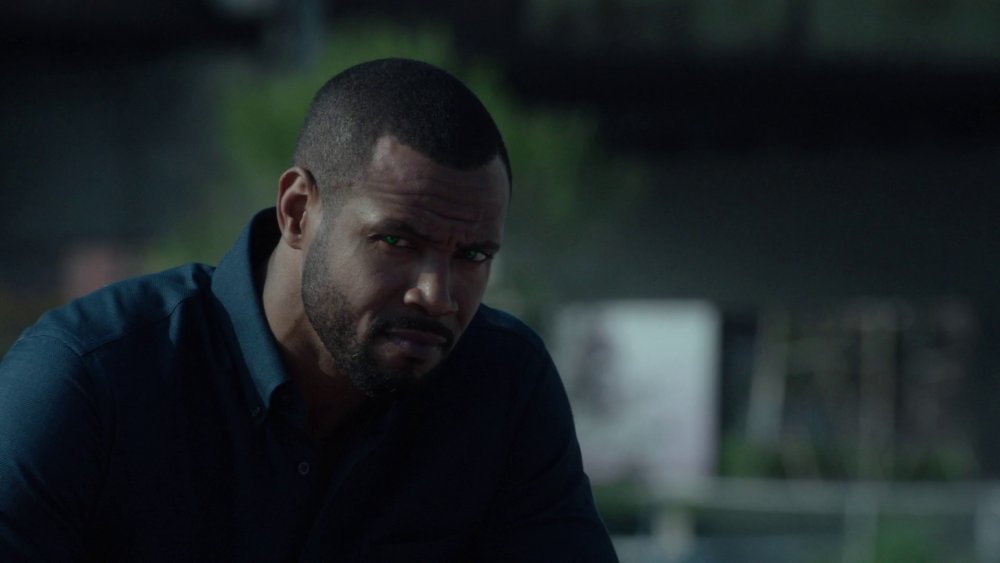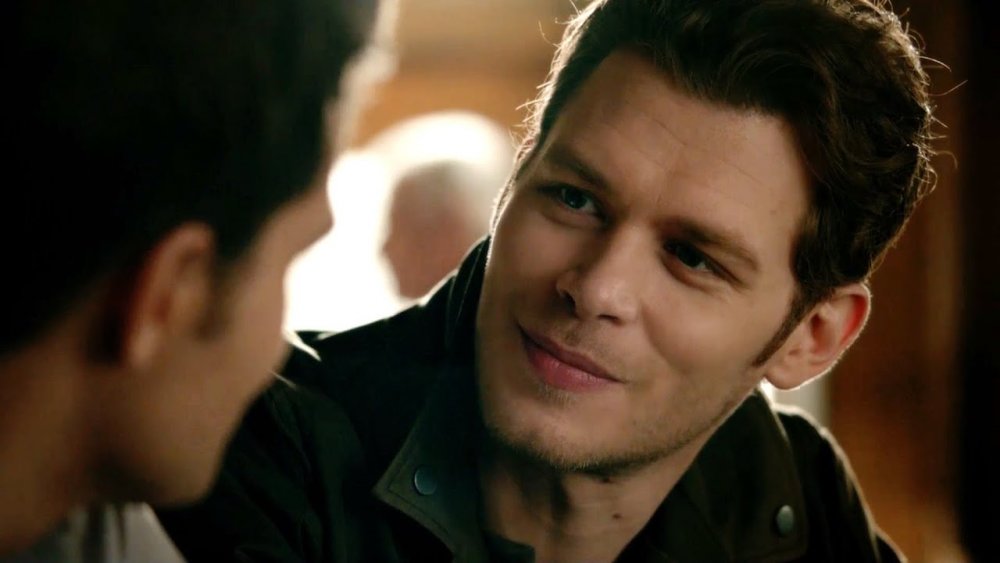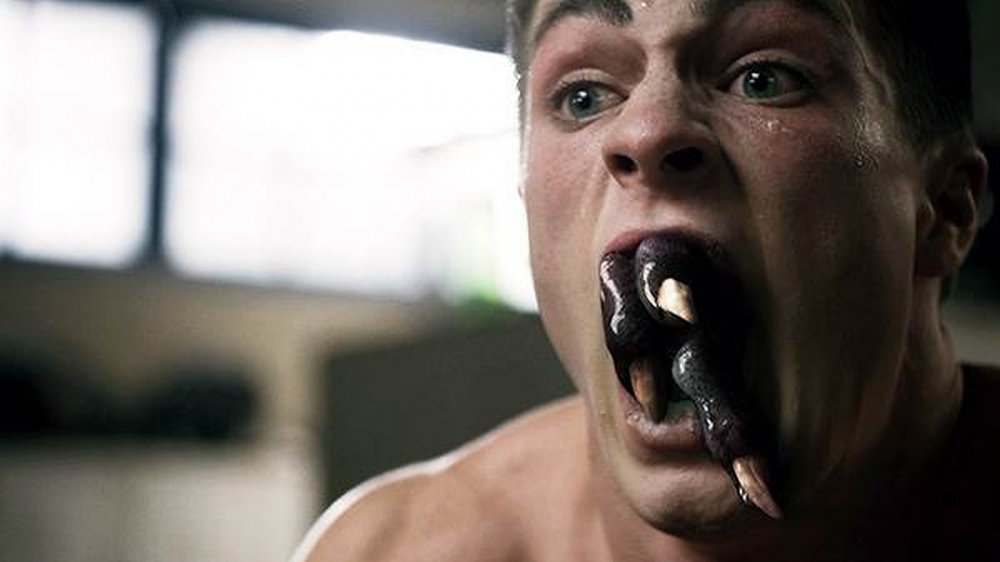The Best TV Werewolves Ranked
Werewolves are the stuff of legend, and our favorite television lycanthropes are certainly nothing short of legendary. Some of these characters have arisen from creative takes on classic fairy tales and even children's stories, like "Little Red Riding Hood." Other TV productions explore the werewolf lore itself more deeply, centering their entire premise around the history and even genealogy of these supernatural beings, as well as their presentation in magical-realist depictions of the modern world.
Of course, some TV werewolves are a little more interesting than others, and today, we're here to explore the best beasties that television has to offer. We've based our rankings on how the characters impact other characters, engage with and move the plot, and illuminate underlying themes. Even more importantly, we're paying attention to their character development in the werewolf context. The werewolf mythology centers around duality and the violence that can arise from struggling to keep a balance with night and day, man and beast, good and evil. These characters must navigate and represent not only the complexities of the fantasy world around them but of their own families, histories, and minds. So, out of the diverse set of enchanted canine-human hybrids on our screens, here are the best and brightest as the full moon.
(Be warned — major spoilers below.)
Claire on Supernatural
Before becoming a werewolf on Supernatural, Claire has already evolved into a hardened "lone wolf" due to encounters with the supernatural that have ripped her family apart over the course of the series. Her experience with the paranormal, which eventually takes the lives of both of her parents, sends her fleeing from group homes and hospitals, finding difficulty accepting help from anyone. This is what makes her lupine transformation in season 12 so meaningful. Although she was only briefly turned into a werewolf, the circumstances give her the opportunity to affirm the value of her chosen family.
In season 11, she voices her feelings of not really belonging with her adoptive mother and sister, Jody and Alex. She makes strides in these relationships, but the fact that she's still hunting behind their backs causes her to be kidnapped in season 12 by a delusional werewolf, Justin. He'd planned to turn his girlfriend into a werewolf partner but was thwarted and lost her in the process, so he decides to turn Claire instead, attempting to convince her that they're more alike than she thinks. However, she insists that she already has a family who loves her. Claire's brief time as a werewolf was a radiant showcase of both her struggle for independence and her slow but profound path to finding her pack.
Ethan Chandler on Penny Dreadful
Ethan Chandler came to London in 2014's Penny Dreadful as a performing gunslinger, but you can bet none of those guns had silver bullets because, unbeknownst to most of the characters and audience until the season one finale, this sharpshooter was a werewolf.
The supernatural identity is especially terrifying to him because of his bloody history. In season three, we find out that he was responsible for the massacre of an innocent Apache tribe, who in return slaughtered his family. As he tells his season one lover, Brona, "There are such sins at my back it would kill me to turn around." Brona's eventual demise serves as the emotional catalyst for yet another bloodbath.
Ethan's beastly side creates turmoil because his "real" personality is demonstrably thoughtful and kind. But his destiny as the "Wolf of God," prophesied to stop Dracula's quest for the Apocalypse, depends on Ethan embracing the totality of his warring identity. To stop the Apocalypse, he must kill Vanessa Ives, with whom he has a romantic connection but whose death will terminate Dracula's cataclysmic hold on London. She begs Ethan to pull the trigger in the 2016 series finale, and killing her is an act of both love and violence that reflects the painful, heroic duality of the wolf-man.
Daniel Osbourne on Buffy the Vampire Slayer
Like many of the wolves on this list, Daniel Osbourne's human-wolf nature serves as a unique context for more classic plot elements. In this case, it's coming-of-age issues like sex and identity. Through this Buffy the Vampire Slayer character, we get to explore fascinating hybrid hypotheticals, like whether the human form of a werewolf is responsible for what the wolf form does.
For example, in season four, Daniel (aka Oz) has sex with a female werewolf after transforming during a full moon. In her human form, this werewolf, Veruca, tries to convince Oz that they're wolves who sometimes masquerade as humans, not the other way around, and that they should embrace their affliction (including killing humans while in their "true form") and be together, rather than trying to fight it. Oz's girlfriend, Willow, is devastated when she discovers the affair, and she provokes an attack from Veruca, but Oz defends his girlfriend and kills the female werewolf.
The thing is, Oz was in wolf form when all this transpired. So if Veruca were really right, if he were really "the wolf all the time," he wouldn't have saved the human and killed the beast. While his identity struggles were far from over, Oz made it clear that the only magic that can truly determine who you are isn't a shape-shifting curse but love.
Garth Fitzgerald IV on Supernatural
Garth Fitzgerald IV may be a werewolf, but at many points, he seems closer to a puppy dog. He's a lover of sweet things and is said to be a good hugger -– probably a better hugger than a hunter, as he tends to frequently find himself incapacitated, even to the point of regaining consciousness after the action is over. The dentist is a stereotypical "lovable nerd" in many ways, harboring a love for comics, as well as for lore that serves him valuably as a hunter.
This Supernatural character gives us a window into the side of the werewolf that we often forget or may not even consider. If every human has an "inner child," why shouldn't every werewolf have an "inner pup?" Garth is affectionate, loyal, a little clumsy, and lovingly wholesome in every way imaginable. He works with a sock puppet sidekick, much like a dog with a favorite toy. After he's turned by the dying bite of a werewolf he was hunting, it's love and the prospect of belonging that keeps him from killing himself out of shame. All this pup needed was a good home. He found one in his pack, and his unique expression of the werewolf experience earned him a home on this list as well.
Madison on Supernatural
Some characters derive their significance from what they reveal about others or even about human nature. For example, Madison's experience as a werewolf begins as a result of, and is consistently influenced by, themes of love, trauma, and abuse. She was originally turned, in what she thought was a mugging, by her neighbor, who'd secretly had a crush on her. After the bite, she ended an abusive relationship as part of a new empowerment to take control of her life. Her violence as a werewolf manifested as a defensive trauma response, as she only attacked those she subconsciously perceived as a threat. This is the reason that she doesn't approach Sam Winchester when she transforms while he's asleep, proving that she had a healthy emotional bond with him, relatively speaking.
When Madison realized that killing the werewolf who turned her didn't cure her lycanthropy, she asked Sam to kill her rather than leave her to wreak havoc on innocent lives. Dean Winchester offered to do it instead, but Sam elected to submit to her request himself. Her plea mirrored his own just a few episodes prior, in which he asked Dean to kill him to keep him from turning evil. By killing her, he actually cemented his emotional connection to her because he truly and deeply understood her predicament and gained a deeper understanding of himself and the conceptions of good and evil by virtue of knowing her.
Alcide Herveaux on True Blood
Alcide Herveaux can be described as a "lone wolf" on the HBO series True Blood, but it would be more accurate to call him a "lone human." The thing that separates him from other werewolves and drives him to seek a more solitary path is the fact that he, unlike most of his kind, has both the ability and the desire to control his animalistic tendencies.
This relative stability doesn't prepare him as well as one might assume for the role of pack leader, which he reluctantly takes on after seeing the Shreveport pack suffer under J.D.'s leadership. While he has a fairly solid handle on his animal instincts, the temptations of human nature are perhaps an even greater threat. As pack leader, he becomes more aggressive and willing to be swayed by the sexual favors of female pack members, eventually abdicating his position in favor of becoming a lone wolf again.
Alcide's personality exhibits the aspect of a werewolf that originate not in the wolf side but in the human side. Both humans and wolves seek intimate connection and loyalty, and while Alcide is very particular about these things, his tiny, selective, chosen pack can depend on him to the fullest extent. He dies in season seven when he gives his life for the (halfling) woman he loves.
Scott McCall on Teen Wolf
Scott McCall is both a human who loves animals and an animal who loves humans. The Teen Wolf protagonist worked as an assistant at an animal clinic before he became a werewolf, a job he took altruistically after watching his single mother struggle. He also owes his life to his former dog, Roxy, who sacrificed herself defending him from another dog's attack. As a wolf, Scott uses his powers to protect the humans he cares about, and once he learns to control his powers, they serve to augment his righteous nature rather than confound it.
Scott's pure heart may be part of what makes him a "true alpha" -– a werewolf who can ascend to the highest rank through strength of character alone, rather than by killing another alpha. This is especially fitting (and convenient) considering Scott's personal reticence to do unnecessary harm. He's only ever killed one enemy throughout the series, the Beast of Gevaudan.
In terms of his gentler nature, Scott isn't the traditional alpha. He's never once used his "alpha roar," which carries the power to compel betas into obedience, on any of his own betas. While becoming a werewolf may have heightened his senses, those of empathy and duty were operating at supernatural levels long before the bite.
Tyler Lockwood on The Vampire Diaries
One of the quintessential struggles of a new werewolf is learning to manage one's powers and avoid the destruction of innocent lives. Becoming a lycanthrope introduces a primal level to an individual's personality, one typically marked by traits of increased aggression, reactionism, and id-driven behavior. The latter we call instinct when we find it in pure-blooded animals and self-centeredness when we see it in humans.
However, on The Vampire Diaries, Tyler Lockwood is unique because his transformation actually reduces these characteristics in his personality. Before encountering the family curse, he was selfish, haughty, and abusive toward those around him, with a short fuse and a penchant for bullying. But the shock and learning curve of adjusting to his new identity forces him to come to terms with the havoc he was capable of wreaking on the people in his life.
Among the most fascinating features of his werewolf form is the fact that it serves as an outlet for his anger issues, and that when he returns through magic to the form of "human with a werewolf gene," his anger issues resurface. For many TV werewolves, the advent of their supernatural life throws their personalities out of balance. Tyler Lockwood is unique in that his transformation actually reveals and helps rectify the inherent imbalance of his psyche and starts him on the path of becoming a better semi-person.
Ruby Lucas on Once Upon a Time
Ruby Lucas, Once Upon a Time's take on the titular protagonist of the "Little Red Riding Hood" fairy tale, isn't just a striking representation of the internal duality of self and foe inherent in the werewolf myth, but she's also an incredibly creative version of the classic fairy tale. In this iteration, instead of posing the wolf as a manipulative outside threat to Red and her family, Once Upon a Time opts to curse her with a magical affliction that turns her into a wolf every full moon.
The wolf still terrorizes Ruby psychologically despite being a part of her, slaughtering her boyfriend before her enchanted red cloak brings her transformations under control and then allowing her to be framed for murder when she begins to lose control once again in season two. The fact that her red cloak is what keeps her from transforming means that, unique to this retelling, her wolf side is the impetus for the defining traits of her iconic human persona. She's "Red" because the only other option is to be a murderous animal.
Over time, though, as she learns to control her wolf side, she also learns to confront her low self-esteem and mend her relationship with her grandmother, who, unlike in the fairy tale, never ends up getting eaten.
Lucian Graymark on Shadowhunters
Lucian Graymark, whose name means "light" and who's known in the human world as Luke Garroway, is a paragon of sacrifice. He's willing to do absolutely anything to protect the people he loves, even if it means becoming estranged from them, as he does in his attempt to protect Clary Fray from being discovered by members of the Circle and exposed to the perilous Shadowhunter world.
He lies to the Circle members, telling them he's never harbored loyalty for them and has only ever looked out for his own interests and the efforts of his pack to procure the Mortal Cup. This lie is aimed at diverting them from Clary, but she actually overhears the conversation and loses trust in him for a time. As a devoted father figure, not to mention someone in love with Clary's mother, the loss of this relationship hurts.
Luke is also a profoundly complex character who reflects the werewolf as the raw, unfettered expression of emotion. When he loses Jocelyn Fray, his control over his lycanthropy goes with her. His grief is so overwhelming that he departs from his human consciousness. Much like the human response to dissociate in times of stress, we see here again the use of a werewolf transformation as a coping mechanism. Ultimately, Luke realizes that his escapism is detrimental to himself and others, and he returns to his protection of Clary and his various on-brand selfless acts.
Klaus on The Vampire Diaries/The Originals
The Vampire Diaries' Klaus Mikaelson, who also features in the 2013-2018 spin-off The Originals, is a pioneer. He's the first half-werewolf, half-vampire hybrid, as well as one of the original vampires. Plus, he's even a member of a witch family.
Klaus' presentation complicates the notion of the pack as a family. Because his history as an Original is longer than that of almost any other immortal being in the series, he's developed a complicated relationship with many of the members of his family, with the exception of his extremely close relationship with his sister, Rebekah. For example, he and his brother, Elijah, once fell for the same woman, and Klaus has an antagonistic relationship with his similarly poor-tempered half-brother, Kol, who he once daggered.
His genealogy lends itself intrinsically to conflict. As a vampire-werewolf hybrid, he's the product of two species, one of whom is lethally susceptible to the bite of the other. Though Klaus is technically part werewolf, he hasn't had access to this side of himself for centuries , but his efforts to break the curse that bars him from this part of his heritage are the focal point of his character arc in the beginning of the series. He wants to sire a superspecies of hybrids, perhaps in an attempt to chase the sense of family that he was largely robbed of due to loss and conflict.
Jackson Whittemore on Teen Wolf
Jackson Whittemore is a character of multiple mythological denominations, and what makes him a great werewolf is that he's the worst –- the worst human, the worst not-quite-werewolf (we'll get to that), and a lousy friend/boyfriend. Of course, it's a little harsh and unfair to call him the worst, but this is definitely how he's portrayed.
The attractive, athletic It Guy antagonizes Scott McCall after the latter's werewolf abilities transform his athletic prowess overnight. Jackson's suspicions turn into obsessions, and when he finally discovers Scott's supernatural secret, he becomes single-minded in his envious quest to become a werewolf, as well, blackmailing Scott and finally coercing a bite from an unwilling Derek.
Jackson's body rejects the bite due to his deep-seated insecurity, resulting from a sense of alienation from his adoptive parents and a rabid perfectionism stemming from this pathology. The curse instead twists his new supernatural identity into that of a kanima, a shape-shifting, serpent-like monster, enslaved by mind control to Gerard Argent and forced to take multiple lives. Though he wanted to become a werewolf for selfish reasons, at the end of his tortuous experience as a kanima, he displays true selflessness, allowing him to complete his transformation into a real werewolf.
Jackson's transformation is the most profound of all the werewolves, from human to kanima to werewolf, and most importantly, from troubled, abusive person to "good" part-person.
